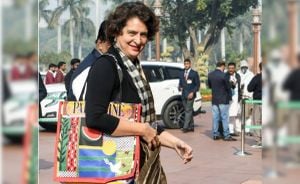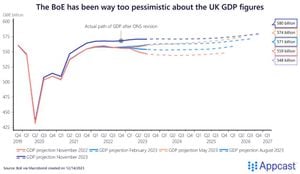South Korea's financial market has been experiencing notable fluctuations, prompting high-stakes meetings among key government officials. Deals with credit ratings agencies, international finance officials, and collaborations with foreign investors are increasingly seen as pivotal actions as the nation tunes its economic strategies to stabilize after recent upheavals.
On December 16, Deputy Prime Minister and Minister of Economy and Finance Choi Sang-mok led discussions with the Governor of the Bank of Korea Rhee Chang-yong, the Chairman of the Financial Services Commission Kim Byung-hwan, and the Deputy Director of the Financial Supervisory Service Lee Se-hoon. This emergency meeting was dedicated to inspecting the macroeconomic factors and financial issues currently facing South Korea. The participants expressed their commitment to round-the-clock monitoring of domestic and foreign financial systems, aiming to uphold international trust.
Choi Sang-mok pointed out the importance of running intensive discussions post-martial law, emphasizing meetings with finance ministers from larger economies and international credit rating agencies to prevent unnecessary misunderstanding or anxiety about South Korea's economic conditions. The group's proactive approach is particularly relevant amid changing perceptions surrounding the nation's fiscal health.
Meanwhile, on the same day, the Minister of Trade, Industry and Energy Ahn Duk-geun convened with leading officials across various sectors. Their conversation focused on economic stability and ensuring the welfare of the general populace following the martial law. The Ministry of Industry revealed efforts to maintain surveillance over key areas like exports, energy sourcing, and foreign investment, assuring citizens and investors alike of continued support.
Despite the tumultuous environment, the ministry highlighted stable exports and foreign investment as indicators of resilience, and pledged to effectively manage budget allocations for the year 2025, reacting swiftly to market demand. Ahn emphasized the imperative of stabilizing national operations, noting it is key to mitigating economic unease and ensuring consistent engagement from various economic players.
Switching gears to the banking sector, several institutions including PVcomBank and HDBank revealed updated interest rates between 7-9.5% under specific conditions. PVcomBank announced competitive rates of 9.5% for terms of 12-13 months, with minimum deposit requirements. Similarly, HDBank set its rates at 8.1% and showcased conditions favoring clients maintaining substantial deposits.
Interestingly, the economic ripple effects of these modified interest rates are being closely monitored by market analysts. The adjustment saw various financial institutions raising their savings rates, with reports indicating Agribank as the standout within the big banks, offering up to 4.8% for longer terms. Notably, the upward trend has caught many off-guard, particularly with the seasonal demand often resulting from consumer sentiment during the holiday season.
According to the latest data compiled by the State Bank of Vietnam, monthly savings from individuals and organizations within the banking ecosystem continued to rise. With figures rising from approximately 6.8 trillion VND to over 7 trillion VND within just three months this year, market observers are analyzing the underlying factors steering these savings trends.
The financial data prompts several hypotheses from monetary experts, some attributing the uptick to the burgeoning growth rate of credit, which recently advanced at almost double the rate of capital accumulation from deposits. This indicates potential liquidity challenges and surging competition among banks for securing substantial deposit bases.
A similar narrative finds its way back to South Korea, where government officials are paying close attention to how these financial maneuvers could affect international partnerships and investment flows. The momentum garnered from high-profile meetings and the consistent evolution of financial regulations are expected to create additional trust channels for foreign investors eyeing South Korea as their next profitable market.
Intertwining discussions of economic stability and financial regulations, it becomes clear this moment might well serve as a pivotal chapter for South Korea's financial roadmap, especially as it strives to calibrate itself between fostering investor confidence and maintaining stable national economic health.
Deep-rooted concerns from the public about economic conditions often lead to skepticism about financial institutions and governmental capabilities. A task force for addressing hurdles faced by foreign investors is expected to bridge gaps and mitigate doubts, assuring stakeholders of sustained engagement and support.



